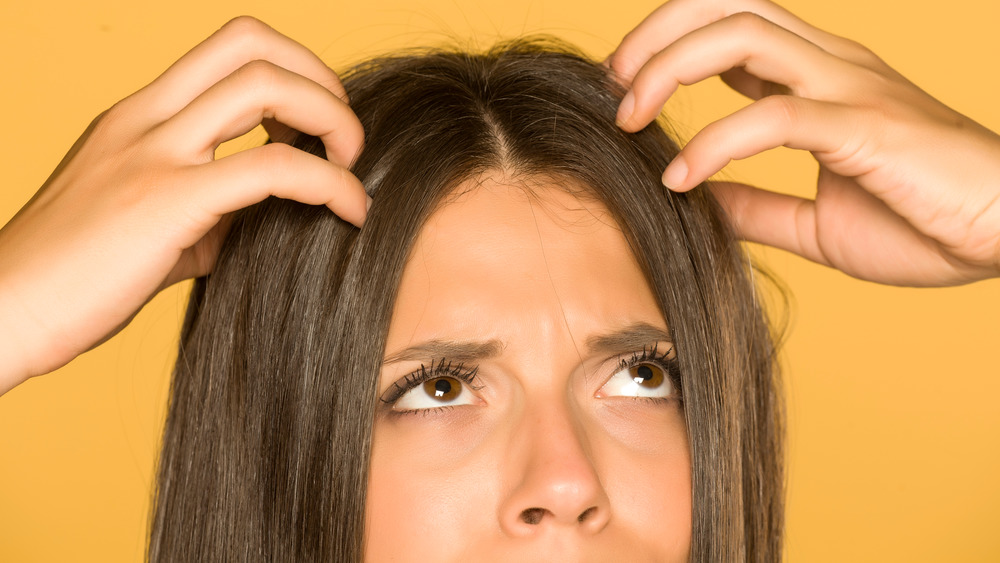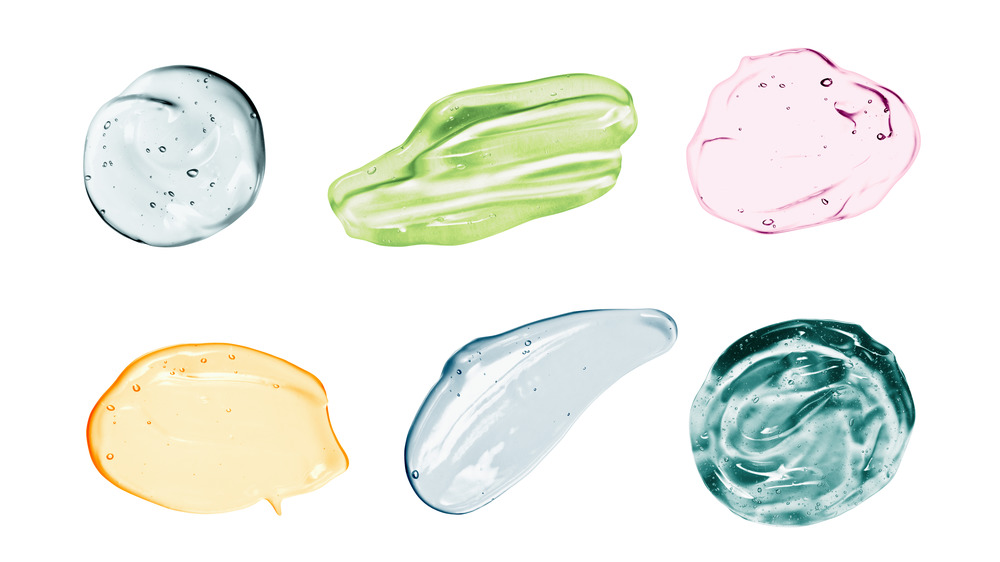Here's How Dandruff Shampoo Really Works
Getting rid of those white flakes on your scalp often starts with a new shampoo and conditioner routine. But, when applying these products, many people don't know what's really happening on the surface of their scalp. How does dandruff even develop? Considering how common dandruff is, it makes sense that the condition actually develops as a rash on the scalp, Allure explains. The flakes appear following an imbalance of yeast on the skin, creating inflamed patches on the scalp.
According to Healthline, dandruff also stems from an issue with cell growth. "The skin cells on your scalp and body normally multiply when you need more of them. Then they die and shed off," the outlet explains. "When you have dandruff, skin cells on your scalp shed more quickly than usual." This issue leads to flaky, oily, irritated skin, meaning that oily scalps are more prone to dandruff. If your flakes are yellowish white, your skin feels itchy and your scalp looks red, it's likely this condition.
Any issue with inflammation should be treated with care and soothed. That's why dandruff shampoos are often less irritating on your skin. Since overgrowth and yeast reactions are often to blame for dandruff, most products help combat this overproduction, Healthline notes. From salicylic acid to coal tar, dandruff shampoo ingredients are what do the work.
Most dandruff shampoos fight off skin irritants
Healthline lists the most common ingredients found in various dandruff shampoos, including antifungal agents like ciclopirox and ketoconazole. Both of these help kill the fungus that spurs irritated skin cells and, thus, dandruff. Salicylic acid and sulfur work to decrease build up on the scalp that causes inflammation — leaving you with a soothed scalp. From fighting irritants to unclogging excess sebum, dandruff shampoos work quickly to mediate common causes of flaky skin.
Dandruff shampoos also dive deep into the skin to remove impurities and kill off any particles that are causing inflammation. Regular shampoos often don't have this capacity for a deep-scalp cleanse. It's also important to regularly wash with this type of shampoo to keep oil and flaking at bay. Beverly Hills dermatologist Stuart H. Kaplan tells Everyday Health that, "Not shampooing enough will only make your dandruff worse — it causes more oil and dead skin cells to accumulate on your scalp, which the yeast and fungi just continue to feed on."
Make sure to keep your conditioner on hand too, however. Since many ingredients may be drying for your strands, anti-dandruff conditioner will help offset any stripping of nutrients, while still fighting off inflammation, the outlet notes. A helpful concoction of powerful ingredients, dandruff shampoo will have you fake-free in no time.

